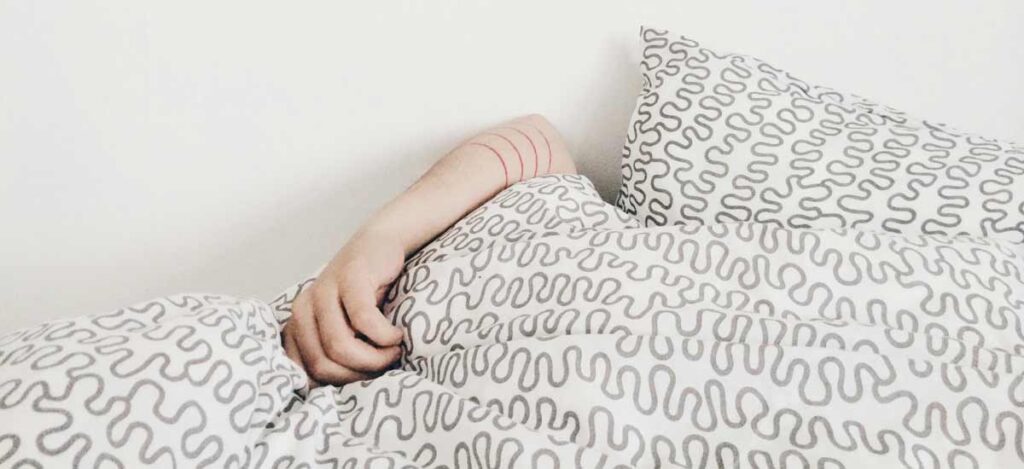Sleep is not just about feeling refreshed, it is deeply intertwined with how your brain ages, your risk for diseases like Alzheimer’s, and even how long you live. We believe good sleep habits are foundational to lifelong health and vitality.
During sleep, especially in its deep and REM stages, the body carries out essential restoration processes:
- Cellular Repair: Muscles, tissues, and organs repair microscopic damage accumulated during the day. Growth hormone, which helps rebuild tissue and muscle, is released predominantly during deep sleep.
- Immune System Strengthening: Good sleep bolsters your immune response. Chronic sleep deprivation weakens immunity, making you more susceptible to infections and slowing the healing process after injuries or surgery.
- Cardiovascular Recovery: Adequate sleep lowers blood pressure, helps balance stress hormones, and gives the heart and blood vessels a period of restorative calm. Poor sleep is linked to higher risks of heart disease and hypertension.
- Inflammation Control: Sleep helps regulate inflammation in the body, which is critical after illness, injury, or surgery to avoid complications and promote quicker recovery.
- Hormonal Regulation: Hormones controlling metabolism, appetite, and stress are balanced during sleep, supporting faster healing and healthier bodily function overall.
Medical Implications
- Post-surgery or after major illness, patients heal faster and experience fewer complications with adequate, quality sleep.
- Chronic conditions such as diabetes, cardiovascular disease, and chronic pain are harder to manage with poor sleep.
- Athletic recovery: Both endurance and resistance athletes see better performance, less soreness, and faster progress with consistent sleep due to effective muscle repair and glycogen replenishment.
Sleep & Cognitive Decline
Mounting research links poor sleep, whether too little or too much—to faster cognitive decline and a higher risk of dementia and Alzheimer’s disease. Not getting enough sleep can promote β-amyloid protein buildup, tau protein abnormalities, and brain inflammation, all of which are hallmarks of Alzheimer’s pathology.
Both short (less than 7 hours) and long (more than 8 or 9 hours) nightly sleep durations are associated with increased dementia risk. Maintaining seven or more hours of quality sleep can help protect your cognitive function as you age.

Sleep and Longevity
Insufficient sleep raises your risk of many chronic conditions—obesity, diabetes, hypertension, depression, even premature death. Sleep also allows your body and brain to repair, consolidate memories, and regulate immune response, all crucial for healthy aging.
Sleep Hygiene: Building Good Sleep Habits
- Consistent, restorative sleep starts with good sleep hygiene:
- Set a consistent schedule: Go to bed and wake up at the same time—even on weekends—to reinforce your circadian rhythm, which makes falling (and staying) asleep easier.
- Create a bedtime routine: Relaxing activities before bed, such as a warm bath, reading, or gentle meditation, can help signal your brain that it’s time for sleep.
- Optimize your bedroom: Keep it cool (around 65°F), quiet, dark, and comfortable. Use blackout curtains, noise machines, or earplugs if needed.
- Limit screen time: The blue light from phones, tablets, and TVs can interfere with melatonin production and delay your sleep onset. Put your cell phone and computers down 2 hours before bedtime.
- Avoid stimulants: Cut down on caffeine in the afternoon and try to eat your last meal several hours before bed.
- Reserve your bed for sleep: Don’t read, work, or watch TV in bed, so your body associates your bed with rest.
Monitoring Sleep with Wearable Technology
Wearable technology has been extensively validated in scientific research and provides an effective option for patients seeking detailed insights into their sleep and physical activity. This can be particularly useful for individuals managing chronic health conditions or recovering from illness.
A wide range of wearable devices are currently available for sleep tracking, including the Apple Watch, Oura Ring, WHOOP, Garmin, and Fitbit. When selecting a device, consider factors such as affordability and whether the device feels comfortable enough for consistent use over extended periods.
Herbal and Natural Remedies
Looking for natural ways to improve sleep? Consider these remedies:
- Magnesium glycinate or threonate which can be found in Natural Vitality Calm, Xymogen OptiMag Neuro
- Supplements with mixed herbs and minerals including valerian extract, passion flower, magnolia bark, phosphatidylserine (Compounded Nutrients Functional Genomic Nutritional Excito-Blox: Rest), mix of Valerian root, lemon balm, 5HTP, PharmaGABA, L-theanine (Researched Nutritionals Circadian PM), individual doses of PharmaGABA are available are also available through Thorne.
All of the supplements listed above are available through the Rezilir Supplement Store, located at 1930 Harrison Street (Suite 404) in Hollywood, Florida.
Can You Catch Up on Lost Sleep?
You might “catch up” on a short-term sleep debt by sleeping in or napping, but it often takes days for your body to truly recover from just a single night lost. Chronic sleep deprivation builds up a “sleep debt” that is not easy to erase; consistent, regular sleep is far more effective than periodic catch-up days. Catching up from one night of missed sleep may take several nights. Avoid relying on catch-up—prioritize regular sleep for true recovery.
Should You Wake at the Same Time Every Day?
Absolutely. Waking at the same time—even after a bad night—helps anchor your internal clock, boosts sleep quality and reduces risk for insomnia and daytime sleepiness. Irregular sleep-wake times can throw off your circadian rhythm, making it harder to fall asleep and stay asleep. Even a consistent wake-up time within a 15–20-minute window is helpful.
Remember: Prioritizing sleep is one of the best investments you can make for your long-term brain health and well-being.
Sleep and Body Recovery: The Essential Link
In addition to its critical role in maintaining brain health and preventing cognitive decline, sleep is fundamental to the body’s physical recovery processes.
Sleep should be recognized as an active, restorative process rather than merely a passive state of rest. For optimal health outcomes, whether recovering from injury or surgery, or managing chronic conditions—prioritizing quality sleep is as essential as adhering to prescribed medications or therapies. If you are experiencing delayed recovery, persistent soreness, or frequent illness, it may be beneficial to assess your sleep habits and consider potential improvements.
For individuals encountering difficulties with sleep, one of our clinicians can provide personalized guidance on herbal and mineral interventions tailored to your needs. Additionally, further evaluation, such as a sleep study, may be recommended to identify underlying issues.
References:
- Zhang, Y., Ren, R., Yang, L., Zhang, H., Shi, Y., Okhravi, H. R., Vitiello, M. V., Sanford, L. D., & Tang, X. (2022). Sleep in Alzheimer’s disease: a systematic review and meta-analysis of polysomnographic findings. Translational psychiatry, 12(1), 136. https://doi.org/10.1038/s41398-022-01897-y
- Covassin, N., & Singh, P. (2016). Sleep Duration and Cardiovascular Disease Risk: Epidemiologic and Experimental Evidence. Sleep medicine clinics, 11(1), 81–89. https://doi.org/10.1016/j.jsmc.2015.10.007
- Watson, N. F., Badr, M. S., Belenky, G., Bliwise, D. L., Buxton, O. M., Buysse, D., Dinges, D. F., Gangwisch, J., Grandner, M. A., Kushida, C., Malhotra, R. K., Martin, J. L., Patel, S. R., Quan, S. F., & Tasali, E. (2015). Recommended Amount of Sleep for a Healthy Adult: A Joint Consensus Statement of the American Academy of Sleep Medicine and Sleep Research Society. Sleep, 38(6), 843–844. https://doi.org/10.5665/sleep.4716
- Birrer, V., Elgendi, M., Lambercy, O. et al. Evaluating reliability in wearable devices for sleep staging. npj Digit. Med.7, 74 (2024). https://doi.org/10.1038/s41746-024-01016-9
- Fischer, D., McHill, A. W., Sano, A., Picard, R. W., Barger, L. K., Czeisler, C. A., Klerman, E. B., & Phillips, A. J. K. (2020). Irregular sleep and event schedules are associated with poorer self-reported well-being in US college students. Sleep, 43(6), zsz300. https://doi.org/10.1093/sleep/zsz300




